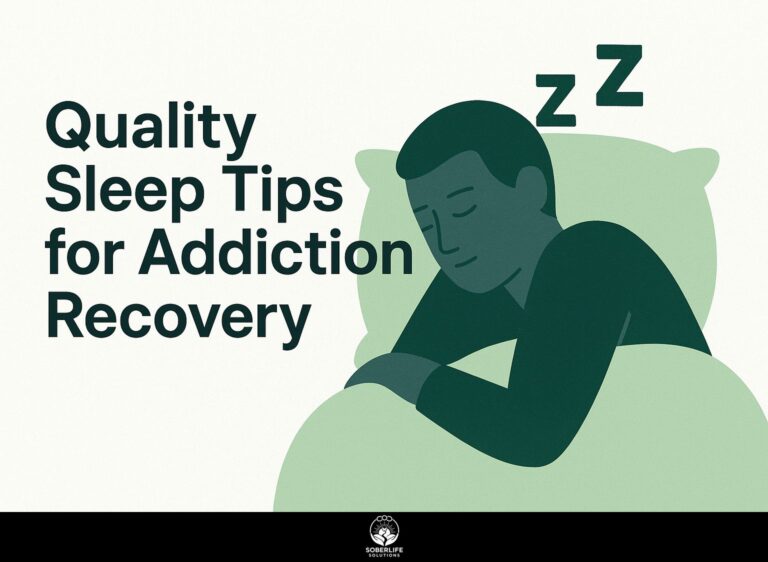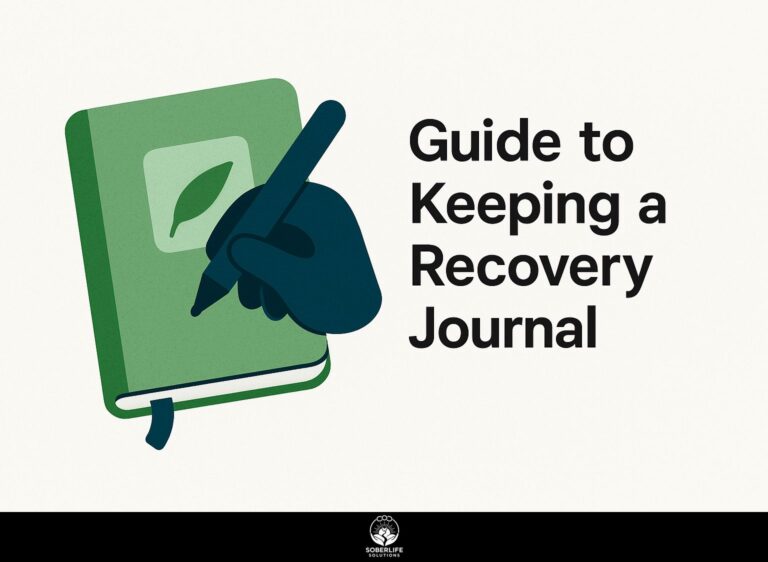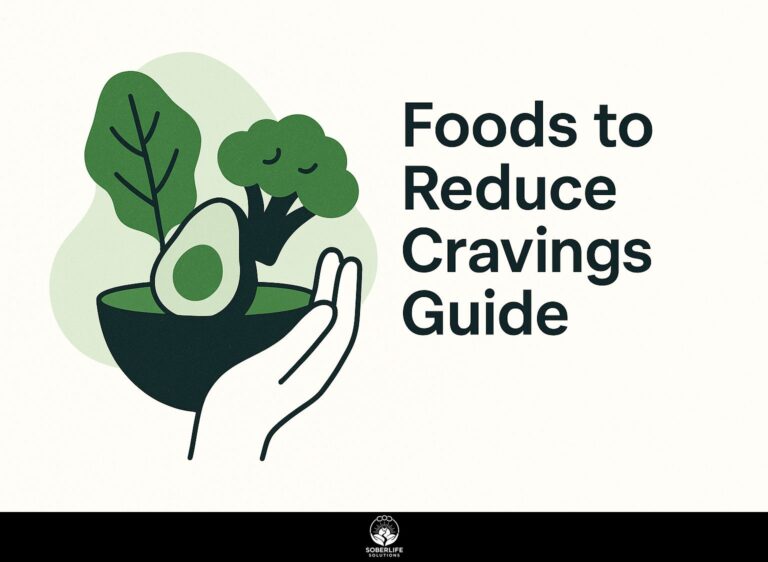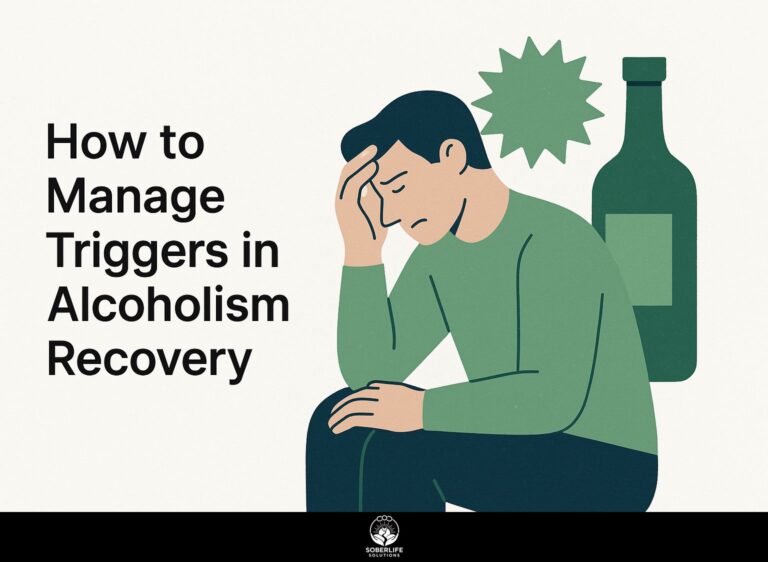Recovery Communities: Finding and Engaging in Support
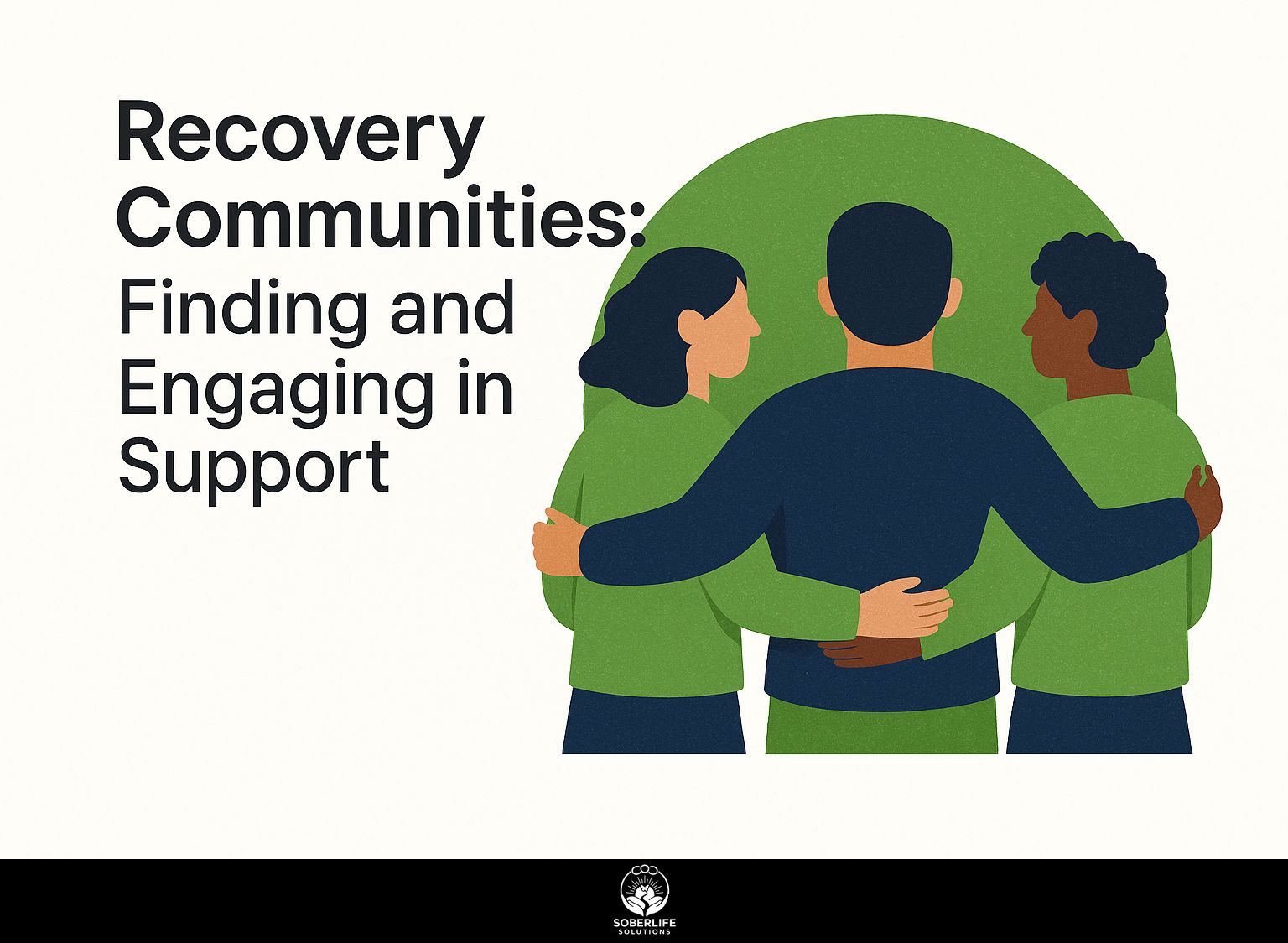
Having a group that supports you can make a big difference when recovering from addiction. These support networks give positive guidance and help build relationships that improve the recovery process. In this article, we will look at different recovery communities, what they offer, and how to get involved in a meaningful way. Find out how joining these groups can help you heal and grow over time.
Key Takeaways:
Types of Recovery Communities
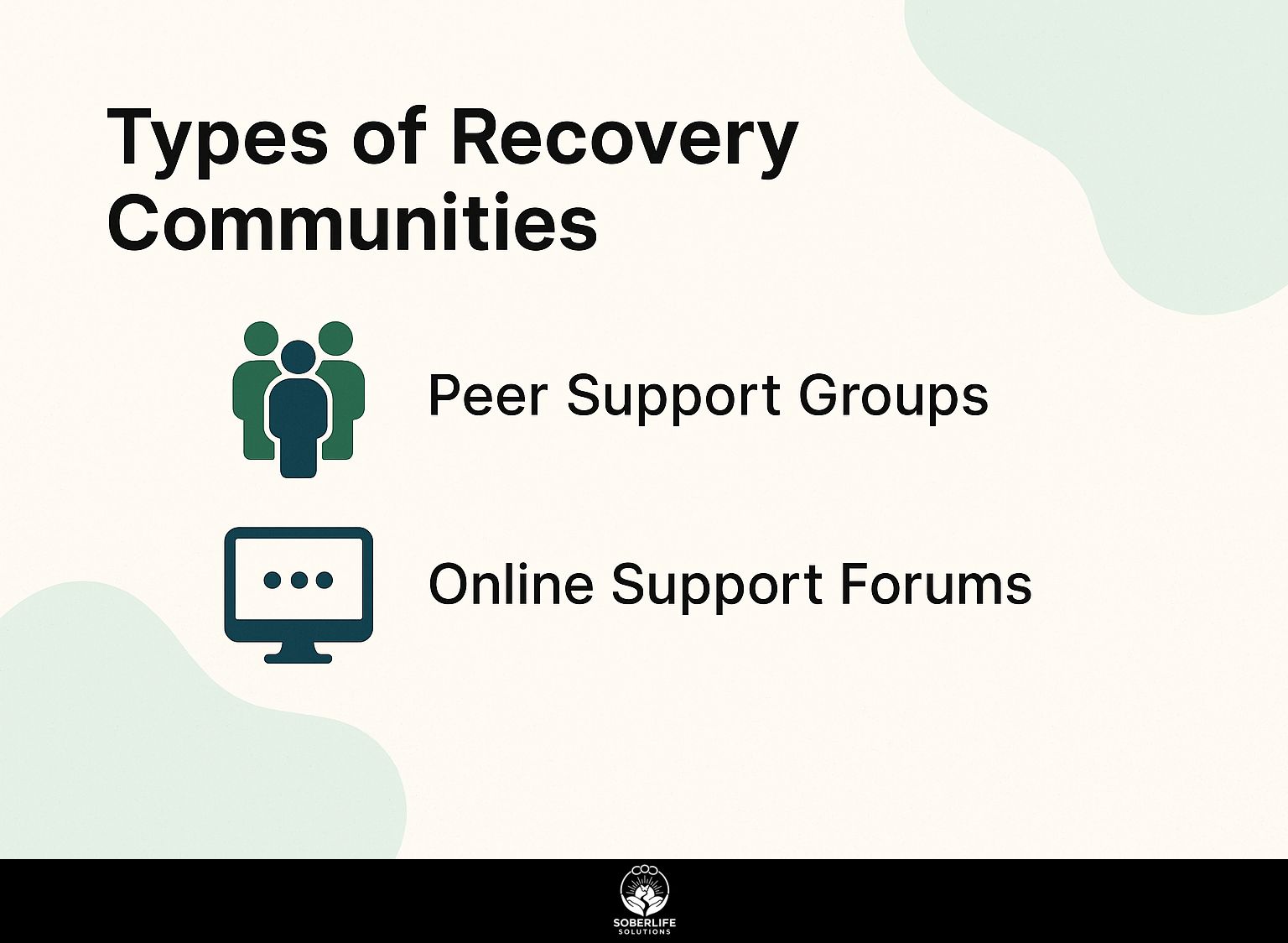
Recovery groups exist in different types, such as nearby support groups that meet in person and large online forums, each providing different ways for people to connect. For those interested in a comprehensive overview, this analysis by Verywell Health covers what to know about support groups, offering valuable insights into how they function and benefit members. If you’re curious about how to effectively join and run these groups, consider exploring our [complete guide to peer support groups](https://soberlifesolutions.com/peer-support-groups-guide/).
Peer Support Groups
Peer support groups, such as Alcoholics Anonymous and Narcotics Anonymous, provide structured environments that promote accountability and shared experiences.
These groups typically hold meetings both in-person and virtually, catering to diverse needs and preferences.
Meeting in person helps build a sense of community, as people can form strong connections with each other. On the other hand, online meetings make it easier for those who can’t be there in person to participate.
In meetings, people talk about their experiences, problems, and successes. This emotional support is very important for healing.
Research indicates that people in these support groups are more successful, with some saying over half remain sober for a year, highlighting the important role of peer support. As noted in a study on ScienceDirect, peer workers play a crucial role in the recovery process.
Online Support Forums
Online support forums provide a safe place for people to connect with others who are going through similar recovery experiences, no matter where they are located. According to Psychology Today, online communities can be beneficial for mental well-being by fostering connections among individuals facing similar challenges.
- Reddit’s r/stopdrinking and the online forum for SMART Recovery are two popular communities. Reddit’s community encourages anonymity, allowing users to share experiences without revealing their identities. This promotes authenticity and openness.
- SMART Recovery provides scheduled meetings and resources for individuals seeking methods backed by science. Both platforms feature moderated discussions, ensuring a respectful environment.
- Pick a forum that matches your interests and where you feel at ease; using different platforms can offer more support and aid in recovery. For additional insights, you might find it helpful to explore how to join online support groups in five easy steps.
Benefits of Engaging in Recovery Communities
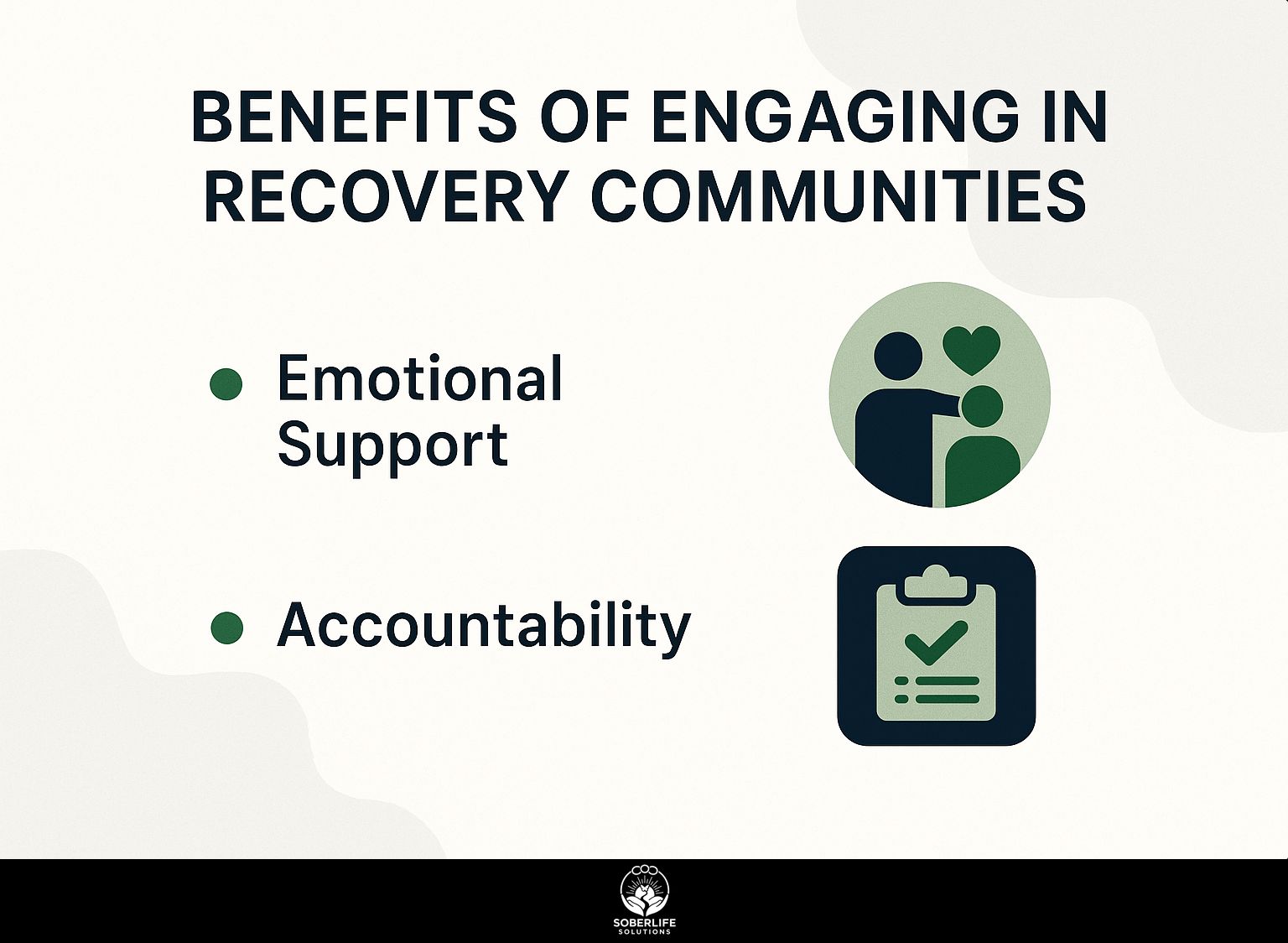
Joining recovery groups greatly improves emotional support and responsibility, which are important parts of a successful recovery. This approach has significant implications for overall recovery strategies- our comprehensive guide on support approaches and benefits demonstrates the broader impact of such groups.
Emotional Support
Recovery groups offer emotional help that can lessen feelings of loneliness and build strength in people dealing with addiction problems.
Joining a recovery group helps improve mental health by providing emotional support and validation through shared experiences with others.
For instance, a study found that individuals engaged in group therapy reported a 30% decrease in anxiety levels. Testimonials from participants often highlight how sharing struggles and successes helps them feel understood and less alone.
Support networks, whether in-person or online, provide a sense of belonging that promotes long-term sobriety.
Using websites like Meetup or online discussion boards can help people find these important groups, supporting their recovery process.
Accountability
Accountability within recovery communities encourages individuals to stay committed to their recovery goals through mutual support and encouragement.
A good way to encourage responsibility is to use recovery agreements. These contracts define specific goals and consequences for not meeting them, which adds a layer of commitment.
Regular check-ins, whether weekly meetings or daily texts, help members share their progress and challenges. For instance, a group might set a goal for members to attend a certain number of meetings each month, with progress discussed in their check-ins.
This structured support approach has been shown to significantly help people follow recovery plans, leading to higher success rates.
How to Find Recovery Communities
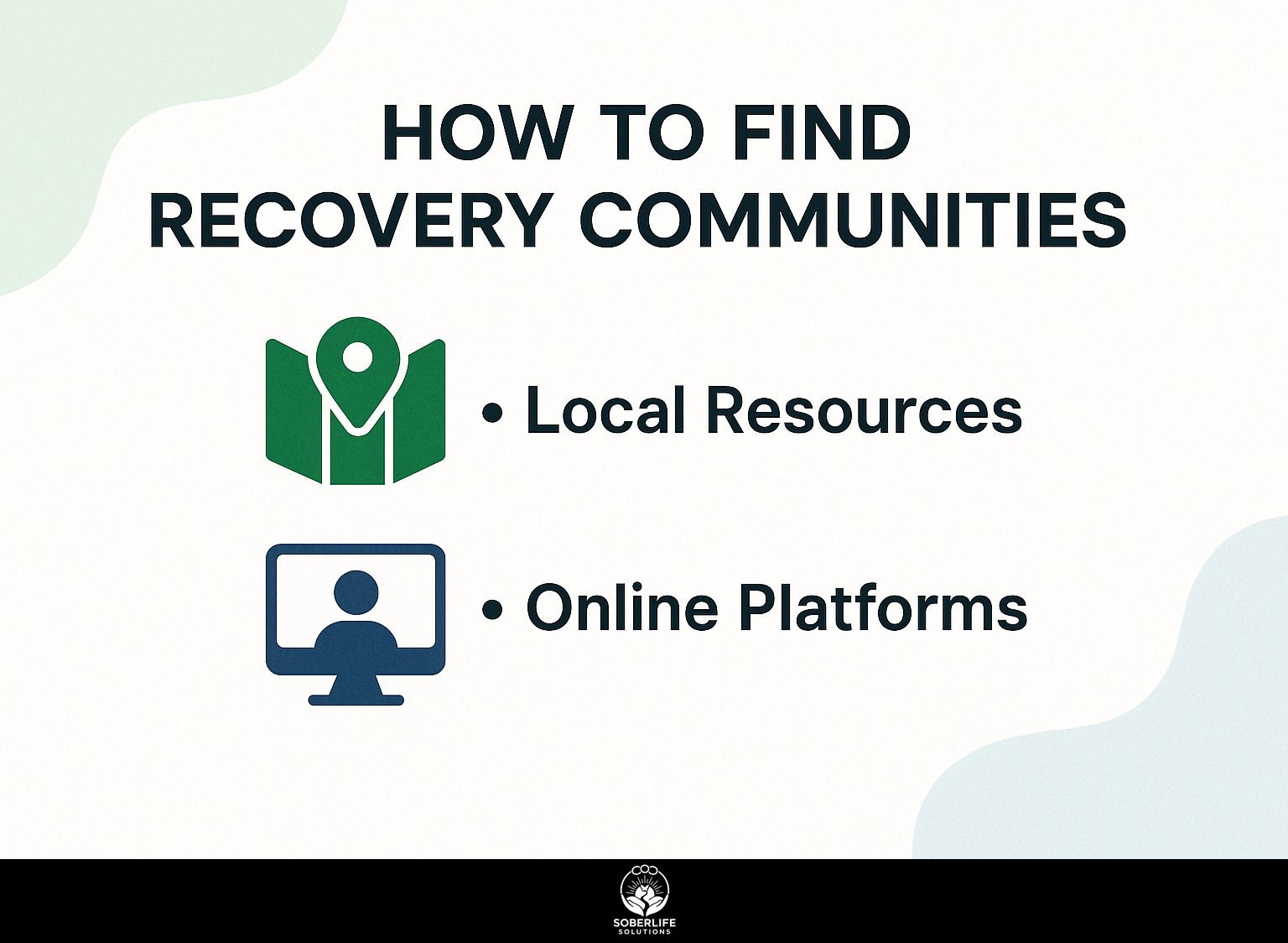
Finding the right recovery community is important, and there are many local resources and online platforms available to help people in their search. For those specifically interested in Alcoholics Anonymous, it’s beneficial to explore various options. Learn more about how to find A.A. meetings with our comprehensive guide for beginners.
Local Resources
Local resources such as community centers and addiction treatment facilities often host recovery groups that provide in-person support.
To find suitable recovery groups, contact local health departments or rehab centers directly. Many facilities maintain updated lists of available support groups, such as Narcotics Anonymous or Alcoholics Anonymous meetings.
Websites like SAMHSA (Substance Abuse and Mental Health Services Administration) offer searchable databases for locating nearby options. When reaching out, ask about meeting times, locations, and any specific entry requirements.
This active method can increase your chances of finding a community that fits your needs.
Online Platforms
Websites such as Facebook groups and specific recovery sites are great places to look for support networks that match your personal needs.
To effectively search and evaluate these communities, start by identifying your specific support requirements. Websites like In The Rooms offer a variety of online meetings and forums, catering to diverse recovery paths.
Once you find possible groups, spend some time reading their rules and guidelines; this knowledge helps you learn what behavior is acceptable and how the community functions. Engage actively but respectfully to gauge the group’s responsiveness and supportiveness.
Think about using platforms like Reddit and Discord to find specific support groups related to what you are interested in.
Strategies for Engaging in Support
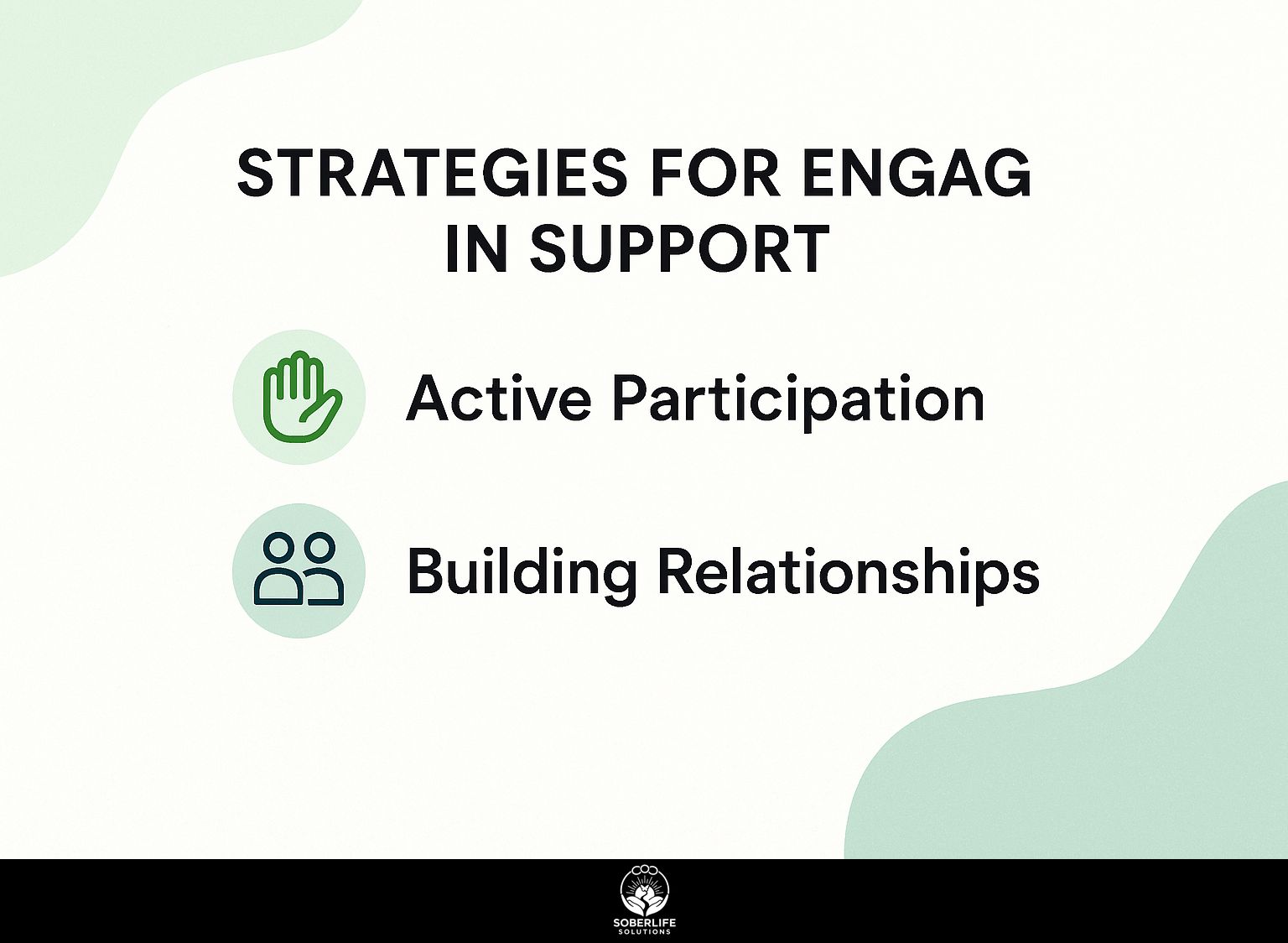
To get the most out of recovery communities, people should use methods that encourage involvement and forming connections.
Active Participation
Being involved in recovery groups can greatly improve the support people get and help them feel included.
To engage meaningfully, consider sharing your personal story during meetings or in online forums. This vulnerability can inspire others and build trust.
Attending regular local meetings, whether online or in-person, helps create connections with others who share similar experiences.
Join community service projects to strengthen your relationships and help others who need it.
Tools like Meetup can help you find these gatherings. Over time, consistent involvement can lead to stronger bonds, a supportive network, and greater overall recovery success.
Building Relationships
Creating strong connections within recovery groups can help people and improve their recovery process.
To build these connections, think about going to local support group meetings and events related to recovery.
Engaging in activities such as community clean-ups or wellness workshops can also provide opportunities to meet like-minded individuals.
Use websites like Meetup or Facebook groups to find events or talks that match your interests.
Find people in these groups who have successfully followed similar paths and learn from them.
Their advice can provide important help and motivation as you expand your connections and strengthen your dedication to recovery.
Challenges in Recovery Communities
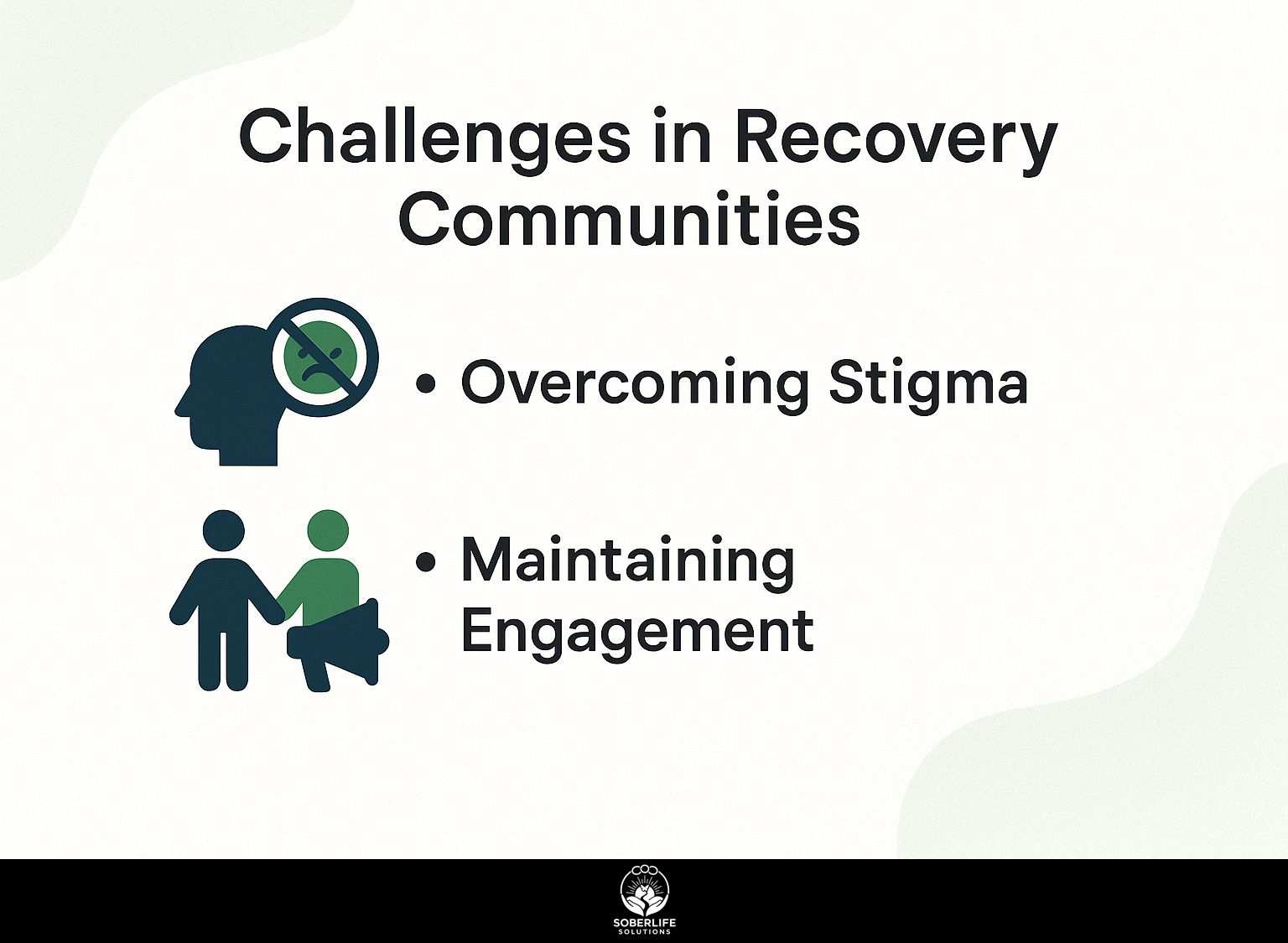
Recovery groups provide many advantages, but they also encounter difficulties that can slow down personal growth and unity within the group. For those seeking effective strategies, understanding the Five Rules of Recovery: Strategies and Importance can be a hidden gem in overcoming these challenges.
Overcoming Stigma
Reducing stigma in recovery groups is important to build a helpful setting and promote honest conversations.
To fight stigma successfully, communities can use various methods.
Promoting empathy through workshops helps members share personal stories that humanize experiences. For example, groups like SMART Recovery organize meetings where people can share their personal stories.
Educational campaigns utilizing social media can raise awareness about mental health issues and debunk common myths. Some successful projects include the ‘Time to Change’ campaign in the UK, which promotes discussions about mental illness, helping to reduce stigma and promote acceptance.
Maintaining Engagement
Maintaining engagement in recovery communities is essential, yet it can be challenging due to various factors such as burnout or life changes.
To participate more, set specific recovery targets, like attending one meeting weekly or chatting with a friend daily. Regular interactions can provide motivation and accountability.
Use MeetUp to find local recovery events or Zoom for online support groups. Avoid common pitfalls such as overcommitting or isolating yourself during tough times.
Consistency is important. Try using a journal to record your progress and emotions-it can help you look back and understand your experiences.
Frequently Asked Questions
What are recovery communities?
Recovery communities are groups of individuals who are in recovery from addiction, and who come together to provide support, resources, and a sense of belonging to one another. They can include 12-step programs, support groups, and other community-based organizations.
Why is it important to find and engage in a recovery community?
Joining a recovery group can offer a helpful network of people who know about addiction and the process of getting better. It can also offer a sense of accountability, resources, and a place to share experiences and tools for maintaining sobriety.
How can I find a recovery community near me?
One way to find a recovery community near you is to ask for referrals from a healthcare professional, therapist, or treatment center. You can also search online for local recovery community organizations, or attend meetings at places of worship or community centers.
What should I look for in a recovery community?
When searching for a recovery community, it’s important to find a group that aligns with your personal values and beliefs. It should also provide a safe and supportive environment, with a focus on confidentiality and anonymity. Also, think about the support and resources available, like group talks, guidance from mentors, and social events.
Do I have to participate in a recovery community for the rest of my life?
The decision to continue participating in a recovery community is a personal one. Some individuals may continue to attend meetings and engage in support for the rest of their lives, while others may gradually transition to less frequent participation. Finding a balance that suits your personal needs is essential.
What if I don’t feel comfortable in my first recovery community?
If you don’t feel comfortable in your first recovery community, it’s okay to try different groups until you find one that feels like the right fit for you. Remember that recovery is a process, and it might take time to find the right support system. Keep going, and find a group that connects with you.

